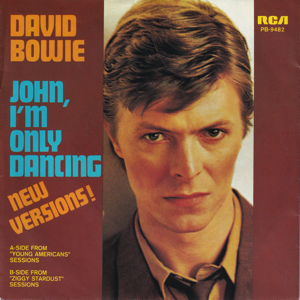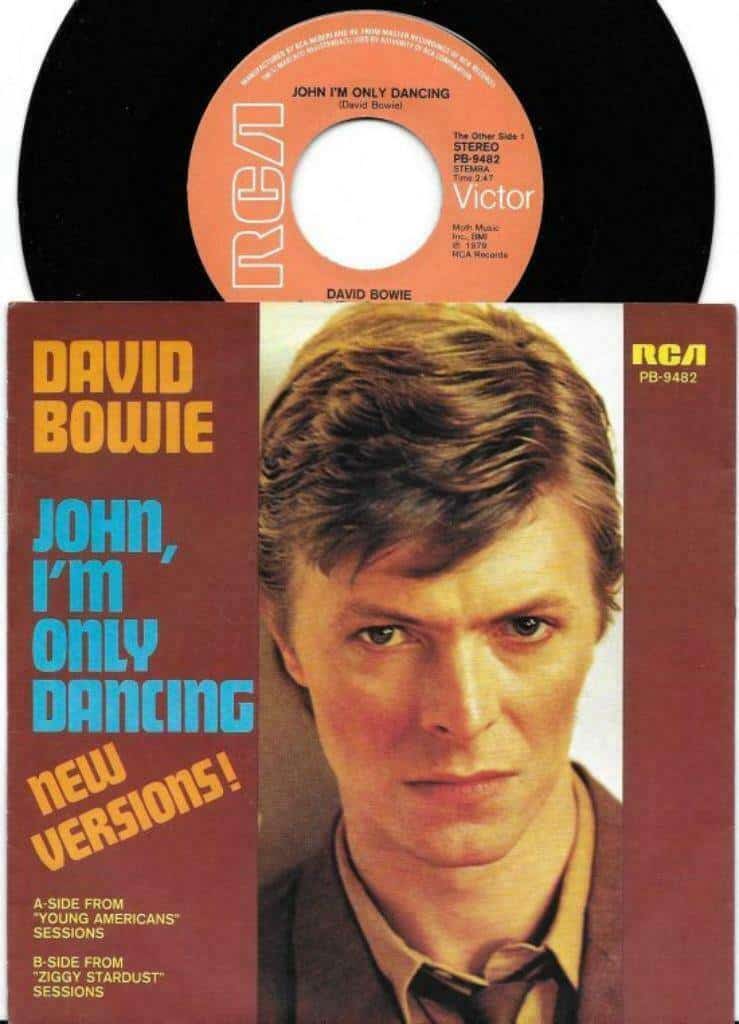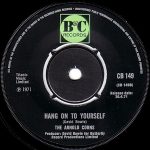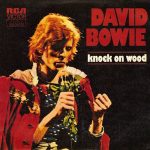“John, I’m Only Dancing” was released in two versions, bearing the same catalogue number, in September 1972 and April 1973. Bowie later re-worked the song into the disco-influenced “John, I’m Only Dancing (Again),” recorded in 1974 but unreleased until 1979.
side A. John, I’m only dancing (again)
side B. John, I’m only dancing
Description
Label: RCA PB-8482
Format: Vinyl, 7″, 45 RPM, Single
Country: Holland
Released: 1979
Media Condition: Near Mint (NM)
Sleeve Condition: Near Mint (NM)
ring wear: very very light damage on the back side
All three seams looking perfect: yes
Picture sleeve looks near mint: yes
creases or folds: no
stamps or writing: no
Recording and release
The song was widely believed to be concerned with a gay relationship, the narrator informing his boyfriend not to worry about the girl he’s with because he’s “only dancing” with her. Bowie had been ‘out’ as bisexual since an interview with Melody Maker in January 1972, and the subject matter did not affect the single’s radio airplay in the UK, where it and the earlier “Starman” became his first back-to-back hits. However, the original video directed by Mick Rock, featuring androgynous dancers from Lindsay Kemp’s mime troupe, was banned by Top of the Pops.
The single was not released in America, being judged too risqué by RCA and did not officially appear stateside until it was finally issued on the compilation Changesonebowie in 1976. While the hook (“John, I’m only dancing / She turns me on / But I’m only dancing”) has long been considered a gay tease, author Nicholas Pegg asserts that the song’s narrator “could just as easily be a straight man reassuring the girl’s lover”. Alternatively, it has been suggested that Bowie wrote the song in response to a derogatory comment made by John Lennon about Bowie’s cross-dressing.
Musically in a light R&B style, the track was recorded on 26 June 1972, released as a single, and then re-recorded on 20 January 1973 during the Aladdin Sane sessions, in a slightly different arrangement featuring Ken Fordham on saxophone. Often called the “sax version”, the second recording was issued as a single in April 1973 with exactly the same catalogue number as the first release, causing difficulties for collectors. Generally held to be superior to the original cut, the sax reworking also appeared on early pressings of Changesonebowie before it was replaced with the original single version.
In 1974, a completely reworked funk-influenced version was recorded as “John, I’m Only Dancing (Again)”; this song is described in detail below.
Track listing
“John, I’m Only Dancing” (Bowie) – 2:43
“Hang On to Yourself” (Bowie) – 2:38
Production credits
Producers:
David Bowie, Ken Scott
Musicians:
David Bowie: vocals, acoustic guitar, sax (on Sax Version)
Mick Ronson: lead guitar
Lou Reed: rhythm guitar
Trevor Bolder: bass guitar
Mick Woodmansey: drums
Live versions
A previously unreleased live version from Boston Music Hall, recorded on 1 October 1972, was released in 1989 on the original Sound + Vision box set, but was not included in subsequent versions of this compilation. The same track, however, was issued on the bonus disc of the Aladdin Sane – 30th Anniversary Edition in 2003.
A live version recorded at Santa Monica Civic Auditorium on 20 October 1972 has been released on Santa Monica ’72 and Live Santa Monica ’72.
A recording from the 1974 tour was released on the semi-legal A Portrait in Flesh.
Other releases
The Portugal release of the single “Starman” from September 1972 had “John, I’m Only Dancing” as the B-side.
In November 1972 it was released as the B-side of the single “The Jean Genie” in Japan.
It appeared on yet another B-side in June 1973, this time the “Cracked Actor” single in Eastern Europe.
A previously-unreleased mix of the 1972 version of the song was released as a bonus track on the Rykodisc CD release of Ziggy Stardust in 1990.
The “sax version” was released on the bonus disc of the 30th Anniversary Edition of Aladdin Sane in 2003.
It was released as a picture disc in the RCA Life Time picture disc set.
It has appeared on the following compilations:
Changesonebowie (1976) – the first 1000 copies of the album included the “sax version”; the remainder featured the original single version
The Best of Bowie (1980) – sax version.
Sound + Vision (1989) – sax version.
Changesbowie (1990) – original single version.
The Singles Collection (1993) – original single version.
The Best of David Bowie 1969/1974 (1997) – sax version.
Best of Bowie (2002) – original single version.
The Best Glam Rock Album in the World…Ever, a compilation of selections from various artists.





